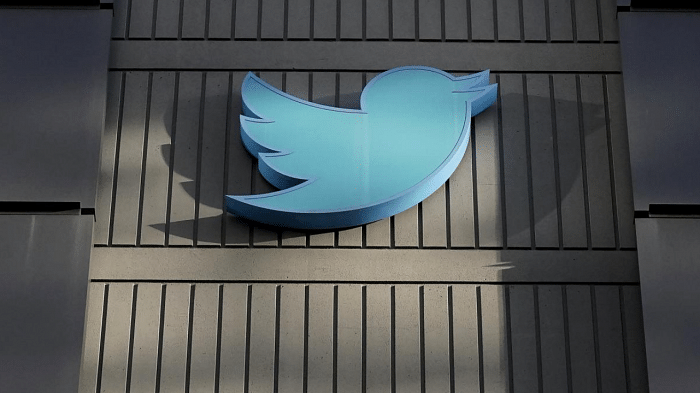
Elon Musk’s ownership of Twitter Inc. and mass layoffs at the company stand to bring major setbacks for diversity and inclusion at the social-media platform.
In his first week as owner, the billionaire fired Chief Executive Officer Parag Agrawal, who had been a supporter of Twitter’s employee resource groups, and rolled back a “work from anywhere” policy that opened the company up to more diverse areas of the country. Chief People and Diversity Officer Dalana Brand tweeted this week that she resigned the day Musk took over.
The firings of about half of the staff on Friday also may hit hard: The leaders of several of Twitter’s diversity-focused groups were part of the job cuts, according to people familiar with the matter.
While the full effects of the layoffs are unclear — Twitter didn’t respond to a request for comment on its diversity and inclusion efforts as the situation was unfolding — employees took to the platform on Friday to share that they lost jobs. Shannon Raj Singh, who had worked as human rights counsel, said the entire human rights team had been cut. One manager said his engineering team for accessibility experience, which works on features to improve the platform’s use for people with disabilities, was also eliminated.
Twitter posted significant gains in the number of Black and Latinx workers in 2021, in part because of its remote-work flexibility. The company’s employee resource groups, such as Twitter Women and Blackbirds, which represents Black workers, were so important to diversity efforts that Agrawal remained a sponsor of the parent-focused group even after he succeeded Jack Dorsey as CEO.
A diverse workforce is particularly critical for a social-media platform that’s been criticized for fostering hate speech and failing to do enough to combat bullying of key user groups, including women and the LGBTQ+ community. Diversity advocates have quickly called foul on Twitter’s new direction, with racist slurs and memes swelling after Musk’s purchase, and companies such as Volkswagen AG’s Audi, Pfizer Inc. and General Mills Inc. have said they are temporarily pausing advertising on the network. Musk said Friday that Twitter has seen a large drop in revenue as advertisers pull back.
The #StopToxicTwitter coalition — made up of more than 60 civil rights groups including the Anti-Defamation League and Accountable Tech — held a call with media on Friday in which they discussed their escalation of calls to Twitter advertisers that they stop ad buys on the platform in the wake of the sweeping layoffs.
“We are witnessing the real time destruction of one of the world’s most powerful communication systems,” said Jessica J. González, co-CEO of Free Press, one of the advocacy groups in the coalition. She said the groups were escalating their campaign in response to Musk’s failure to uphold his commitment to take the measures that would prevent Twitter from becoming a superspreader of racism and misinformation.
Rashad Robinson, president of Color of Change, an influential racial-justice group, criticized Musk for the layoffs involving ERGs. Such groups were “critical,” Robinson said on the call, “not just for the employees, but for the communities they are connected to.”
Musk has been dogged by a spotty track record for diversity at his electric-vehicle company Tesla Inc., which has only three named executive officers, all of them White men. The company has faced numerous lawsuits on behalf of Black workers at its Fremont, California, auto plant.
In February, the state of California itself sued the company for race discrimination and harassment, saying that Black workers were “subjected to racial slurs and discriminated against in job assignments, discipline, pay, and promotion, among other violations” and noted that Black employees remain severely underrepresented in the ranks of executives, senior officials, and managers at Tesla. Valerie Workman, once Tesla’s most prominent Black executive, left in January.
At Twitter, Musk has assembled a transition team of close confidants to help identify deep cost cuts and quick ways to jump-start revenue. The global workforce reductions are expected to affect 3,700 jobs. Some outgoing staff said they will be paid at least two months of severance.
“As a general rule, layoffs typically disenfranchise people in protected categories: age, race, gender, disability, pregnancy and people who have complained about discrimination in the past,” said Bernard Alexander, an employment lawyer in Los Angeles who represented a worker in a case against Tesla.
Beyond layoffs, Musk’s policy of requiring Twitter employees to be in the office also may hurt underrepresented groups. An analysis by LinkedIn this week showed that Black, Hispanic and female job applicants make up a greater share of jobseekers for roles that can be done remotely compared with their White and male counterparts. And surveys have shown Black employees who work remotely are more likely to say they are valued and treated fairly.
Angelo Carusone, the president of advocacy group Media Matters, said on the #StopToxicTwitter call that he was particularly concerned about Musk’s interest in unraveling Twitter’s policy against deadnaming trans individuals. He said Musk’s laughing emoji response to a news article warning how Twitter was going to become a more hateful platform for LGBTQ people was an “illustration and a reinforcement” of Musk’s inability to execute on “even the modest content policies that are currently in place.”
Leaders of the advocacy groups said Musk’s recent actions betrayed his seeming attentiveness during their call with the new Twitter owner on Tuesday. During that call, said Free Press co-CEO González, Musk promised that employees who were frozen out of Twitter’s content moderation dashboard would have access to those tools by Friday. Instead, she said, a noteworthy number of those workers — about 15 per cent, according to a recent tweet by Yoel Roth, Twitter’s head of safety and integrity — had been fired from their jobs.
--With assistance from Dana Hull, Kurt Wagner and Mark Milian.